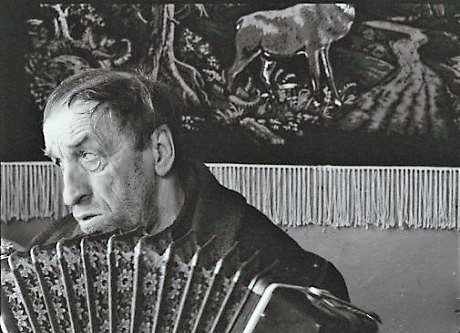


Andreas Horvath: Helmut Berger – Actor
In the 1970’es my friend Kjell Væring and I went to see Luchino Visconti’s ”Ludwig” about King Ludwig II of Bavaria, 235 mins.(!). A masterpiece that we watched in a big cinema on Champs Élysées in Paris. We wrote about the film for a Danish newspaper and our admiration for the master director was made bigger with that film as with those that followed – ”The Damned” and ”The Conversation Piece”. Very much because of the unique acting by Helmut Berger, the companion of Visconti.
So I expected that Andreas Horvath’s film on Berger from 2015, decades after the films mentioned, would be about how it was to live with and act in films by Visconti. The life of an actor, what is acting… I am sure that was also what Horvath intended to do. It never happened. Well he cuts some times to a signed photo of Visconti on the wall in the flat in Salzburg, where most of the film takes place.
Instead Horvath has made an amazing (and for us who remember the handsome young Berger) shocking film about a man around 70 years old, who lives in a total mess, an alcoholic, a man who has his sofa table full of pills to take away his depressions and nightmares and insomnia, a man who does not approve to be filmed at one moment and says yes at the next, a man in dissolution, who calls the director at night urging him to ”write a book about me”, and then ”I am tired of all these interviews”, actually there has been none, as the director says to him, ”we have not started yet”, ”go to bed, you bore me”, says Berger, who moments later turns to the director saying ”I love you, I can feel it growing like a tumor…”.
Look at the photo, taken just after another conflict between the two, where Berger attacks Horvath and his camera and the latter (finally) loses his temper and calls him ”you are an asshole and much more words to that effect”. Berger, on the photo, says ”and so what”!
If there is such a thing, it is a scoop that Horvath has filmed wonderful Viola Stecht, who comes to take care of Berger, i.e. wash his clothes, clean up the mess, bring some food that he can warm up. She talks about him and through her we get around the flat to see objects from his acting past. A guardian angel, who does not hide that Berger is difficult but also mentions that he has been nice and generous to her.
Most of the film is shot inside the flat in Salzburg and in hotel rooms in France and Italy. But luckily the director has some emotional sequences, sceneries from mountain areas around Salzburg I guess, with Wagner music. Yes Horvath is a Visconti/Ludwig connaisseur and it is good to get away from Berger for some moments before going back to the misery and the insults. Is it a directed film. Yes by the two with an actor, who knows exactly, what he is doing on this stage of life. Do we get to know who he really is? Yes, he is like that and he wants the director to film him masturbating, which has become the end scene of the film.
The film is being shown at the Jihlava festival very soon.
Photo: Andreas Horvath.
Austria, 2015, 90 mins.
